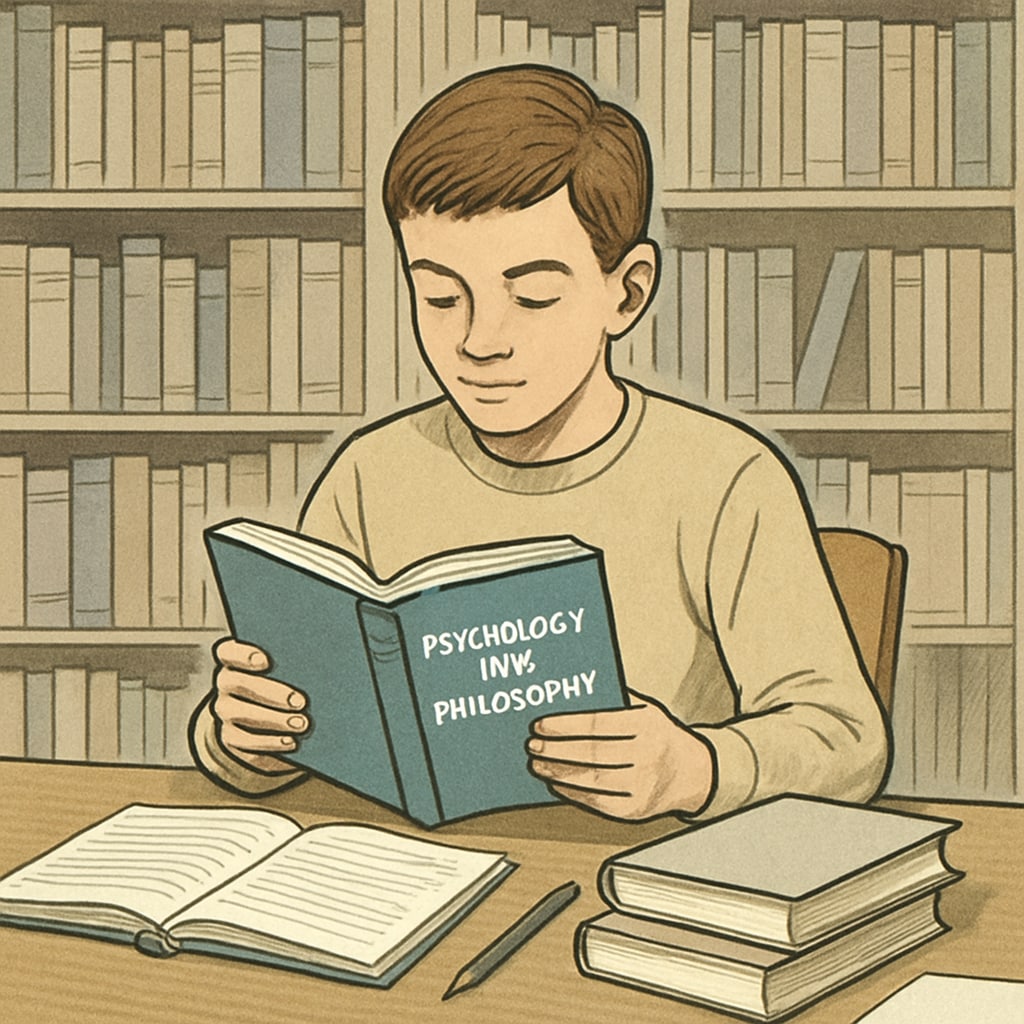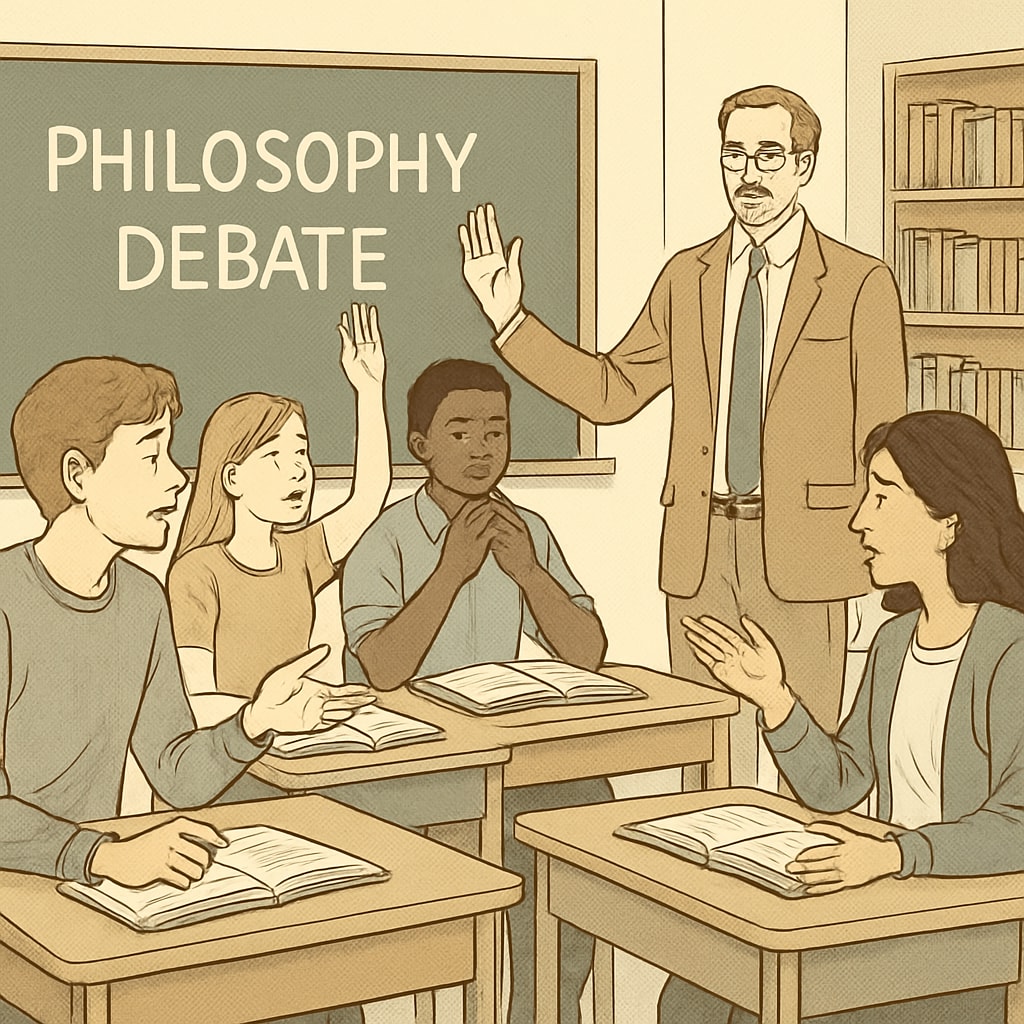Psychology and philosophy are disciplines that delve into the complexities of the human mind and the nature of existence. For K12 students, self-learning in these areas can provide a solid foundation for critical thinking, empathy, and lifelong curiosity. This article provides curated self-learning resources and methods tailored specifically for young learners to explore these fascinating fields beyond traditional education.
Why Learn Psychology and Philosophy During K12?
Psychology helps students understand human behavior, emotions, and decision-making processes. Philosophy, on the other hand, teaches them to question assumptions, construct logical arguments, and explore fundamental questions about life. Together, these fields enhance cognitive skills and foster a holistic view of the world.
For example, learning about cognitive biases in psychology can help students make better decisions, while studying ethical theories in philosophy can nurture a sense of justice. These subjects not only complement academic growth but also equip students with tools for personal and social development.

Top Resources for Self-Learning Psychology and Philosophy
With the right resources, self-learning psychology and philosophy can be both engaging and effective. Below are some highly recommended options:
- Books: Start with accessible texts like “The Psychology Book” by DK for psychology and “Sophie’s World” by Jostein Gaarder for philosophy. These books simplify complex ideas for beginners.
- Online Courses: Platforms like Coursera and edX offer beginner-friendly courses in both subjects. Look for introductory courses such as “Introduction to Psychology” or “Philosophy for Beginners.”
- Podcasts and Videos: Channels like CrashCourse and TED-Ed on YouTube provide short, engaging lessons on various topics in psychology and philosophy.
- Interactive Apps: Apps like Headspace (psychology) and Stoic (philosophy) offer practical insights and exercises to apply theories in daily life.
- Publications: Websites like Stanford Encyclopedia of Philosophy and Psychology Today provide free, reliable articles for further study.
These resources are designed to be age-appropriate, ensuring that young learners can navigate and engage with the material effectively.
How to Cultivate Interest in Psychology and Philosophy
Self-learning requires discipline and motivation. To foster interest in these subjects, students and educators can adopt the following strategies:
- Start with Curiosity: Encourage students to ask questions about their experiences, such as “Why do people behave differently in groups?” or “What is the meaning of happiness?” These questions naturally lead to topics in psychology and philosophy.
- Set Goals: Break down learning into small, achievable goals. For instance, aim to read one chapter of a book or watch a 10-minute video daily.
- Join Communities: Participate in online forums, such as Reddit’s Psychology or Philosophy subreddits, to discuss ideas and gain diverse perspectives.
- Apply Theories: Encourage students to apply concepts in their lives. For example, try mindfulness exercises (psychology) or debate ethical dilemmas (philosophy).
- Seek Mentors: Collaborate with teachers or professionals who can recommend tailored resources and offer guidance.

Overcoming Challenges in Self-Learning
Self-learning can be challenging, especially in abstract subjects. Here are some common obstacles and solutions:
- Complex Concepts: Use simplified resources and revisit difficult topics multiple times.
- Lack of Structure: Follow a structured curriculum, such as those provided by online courses.
- Limited Time: Dedicate 15-30 minutes daily to consistent learning.
By addressing these challenges, students can build confidence and sustain their learning journey over the long term.
Conclusion: Laying the Foundation for Lifelong Learning
Developing an interest in psychology and philosophy during the K12 years can have a profound impact on a student’s intellectual and emotional growth. By leveraging curated resources and adopting effective strategies, young learners can embark on a journey of self-discovery and critical thinking that lasts a lifetime. Whether through books, online courses, or practical applications, the opportunities to explore these fields are endless.
Start today, and open the door to the fascinating worlds of psychology and philosophy!


